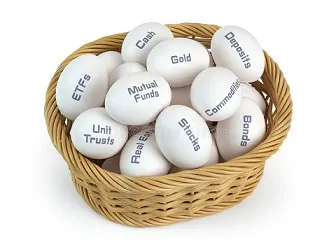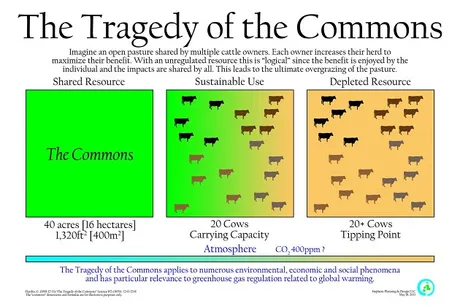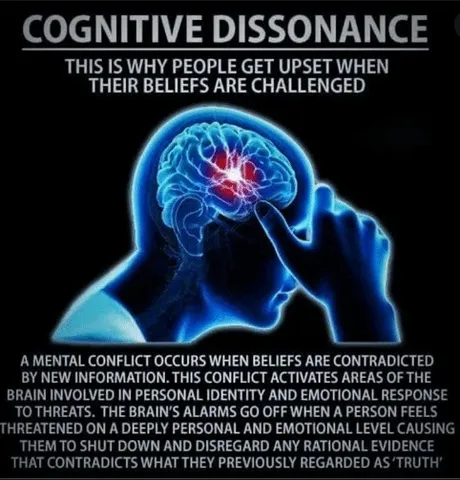
What is value?
So a store of value stores value, but what is value? Such seemingly simple question with a weirdly complex answer. Value is not a tangible thing. We made it up. It can't even be measured without an agreed upon unit of account like USD.
Value is situational
Value is never intrinsic. When someone says something like, "Bitcoin doesn't have intrinsic value," they are blowing smoke. Nothing has intrinsic value. A house doesn't have value if it's in the middle of the desert and a person couldn't survive there. A car doesn't have value if there are no roads to drive it on or zero gas to put in the tank. Gold doesn't have value if one is stranded on a deserted island.
Value comes from society.
Money can never have value by itself. It's the entire system of infrastructure around the money that has actual value. The economy has value, while the money is just a tool of measurement. The relationships between businesses have value. Fun fact: did you know that before people in USA actually started eating kale, the biggest buyer of this product was Pizza Hut?
Do you know what they used it for?

Seriously who remembers this?
The biggest client for buying kale, Pizza the Hut, used it as a garnish in their salad bar. Yep, it just sat there to make the other food look more pretty and green, and then it got thrown away as soon as it stopped looking pretty. How crazy is that?
From the economy
It's no secret that the value of USD is greater in developing nations. Why is that? It's because a developing nation's economy has less to offer, and their native currency is more volatile and far less stable than the world reserve currency. Location location location. Context matters.
As a form of consensus
Money itself is a form of consensus, just not a very decentralized type. We agree that money has value because it's not going to get printed to infinity. In certain places we find that this is a bet that is often lost. Thus the need for a system that can't be so easily rigged by those who control it.
As a reputation system
Money is the most archaic form of reputation. Having a lot of money loosely implies that the person in possession of that power has already provided a legitimate amount of value to society in the first place. Who are we to stop them when they intend to collect their "fair share"?
Of course we all know that the system has been gamed to oblivion at this point. It's easy to unfairly acquire obscene amounts of money given the proper environment, especially when corners get cut that result in the Tragedy of the Commons. Shared resources will always be exploited for profit should the opportunity arise, and society itself is the one to pay for it.

Value is stored work.
Money would have very little value if we could all build our own product. How many people would buy a house if they could build their own house? Why buy a phone if you can create your own phone? All the value stored within the economy hinges on that fact that it takes a dozen different experts in a dozen different fields to even make something as basic as a ball-point-pen. The economy is a machine that allows different parties to work together in order to provide society with a finished product that is actually useful to the end-consumer.
It is in this way that we can think of these stores of value as a representation of hours worked. Whenever we spend money for a product or service, somebody somewhere had to spend time out of their work day to make the thing happen. Far more likely that dozens or even hundreds of people were working to make this happen. Welcome to mass production.
How many people had to work to serve you dinner at a restaurant?
- The hostess greets you at the door and gives you a seat
- The waitress takes your order.
- The cook prepares the food.
- The busboy cleans up after you.
- The dishwasher does the thing.
- The manager makes sure it all runs smoothly.
But what about all those who don't even work at the restaurant?
Did you order a chicken Cesar salad? Who grew the lettuce? I guarantee it wasn't the same farm that made the parmesan cheese. What about the chicken? Also came from a different place. Croutons and dressing? Same story. What about the shipping company that delivers it all?
By the time we add it all up: hundreds of people had to work at least some amount of time just so one person could eat one salad for $12.99. When you actually think about it, it's amazing that this system can even work in the first place. That's the thing about mass production. A restaurant doesn't serve one salad, just like a factory doesn't sell a single ball-point-pen. Sustainability is achieved by way of millions of people all willing to pay for these things at the same time.
Bitcoin is stored energy.
Or at least this is sometimes how Bitcoiners like to describe it. I've said it before and I'll say it again: Bitcoin is obviously not storing value at all. Value is being created here and it's our job to figure out why. How can an asset like this just keep going up exponentially for longer than a decade? The Tulip and Dot Com arguments have completely failed over this timeline.
My theory is that Bitcoin does something that no other currency before it could have possibly hoped to achieve. Bitcoin is a technology, and as such it is capturing the value of other technologies around it. Fiat can't do that. The Greed of those who control the money would never allow that, and instead opt to funnel that value into their own pockets.

Delusions of the maximalist
The Bitcoin-only cult is in for a very rude awakening indeed. Their entire religion is based on a contradiction; a paradox most foul. On one hand they believe that Bitcoin is the savoir of humanity and will usher in a new paradigm of abundance and economic fairness. And yet in the same breath they will also talk about how it's going to capture all the world's value, create "generational wealth", and "wife changing money". It couldn't possibly be any more of a toxic and utterly delusional mindset. Just ask the GME apes.
Because stored value is a representation of actual human time and labor, the concept that Bitcoin, a product that creates zero actual consumable value, could capture the entire world boils down to one very simple outcome: slavery. Maximalists actually believe that everyone who didn't buy Bitcoin is going to be their literal slave in the future. And their children's, and their children's children. That is what generational wealth means by definition. It's so utterly offensive to Satoshi's vision I'm quite frankly at a loss for words every time I talk about it. Let's just say it's gross and leave it at that.
Conclusion
Value is an abstract idea that presents itself when two or more people come together to make a trade. A house only has value if there is a market to sell it on; same as any other product or service. Without a social construct to bind us all together: the concept of value becomes meaningless.
Money is the oil that greases the gears of commerce. What good is motor oil without a motor? On the flip side, what good is a motor without oil? Everything must be in its place for the systems that we've built to actually work. Every component becomes a lynch pin. This is what people in crypto fail to understand sometimes: the money is worthless if we can't actually buy anything with it. Society as a whole has to be legitimately healthy in order for crypto to attain its true value and place within the world. It's a tall order to be sure. Keep grinding.
Return from What does a store-of-value actually store? to edicted's Web3 Blog
